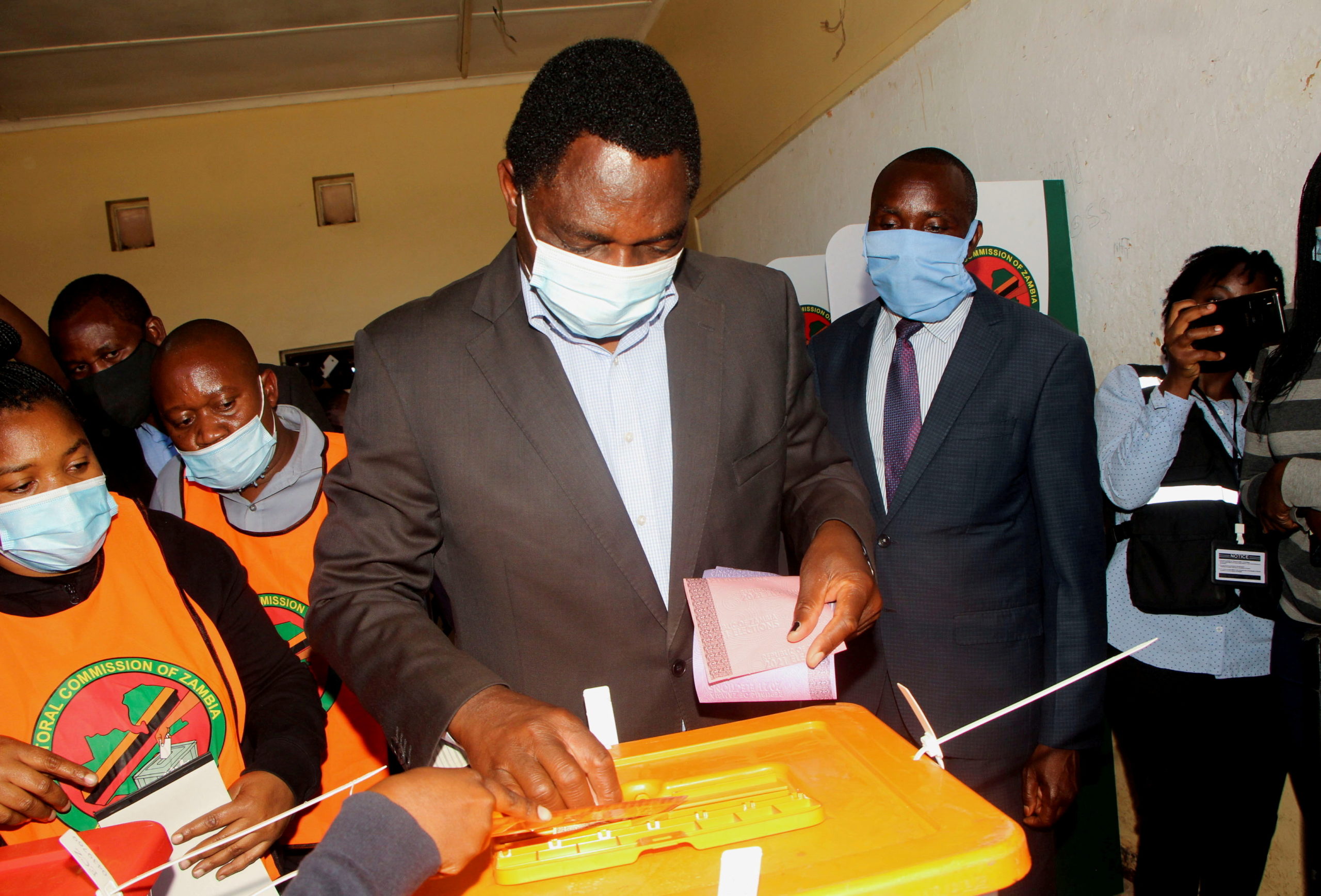Electoral watchdog, Zimbabwe Election Support Network (Zesn) recently held a virtual meeting to deliberate on Zambia’s historic election and how Zimbabwe can learn from it.
The virtual discussion comprised of a panel of individuals that have interests in electoral matters, democracy and human rights.
Election Analyst and Executive director of Common Cause Zambia Susan Mwape, noted that the elections management body communicated late about the process of observers’ accreditation, which was complex and that made it difficult for organisations to deploy observers.
“The media was very polarised with the public media favouring the then incumbent and the private media was also polarised.
“The internet was partly shut down on 12 August.
“Internet was restored after a court challenge,” Mwape said during the virtual discussion.
Mwape further added that the Ministry of Home Affairs issued voter registration cards, more in the strongholds of the (Patriotic Front) PF compared to the opposition.
This suggested that the Commission wasn’t consultative in its decision making.
Resident senior director and chief of party of the National Democratic Institute (NDI), Arnold Tsunga mentioned that context was everything also adding on what happened in Zambia that can be adapted in Zimbabwe.
“Zimbabwe has not yet embedded a culture of peaceful transfer a power after a loss in elections, for instance in 2008.
“There is need for the realisation by those who fought for liberation, who now constitute the albatross, that authority should come from the people,”
“There is also need for strong institutions, including civil society,” Tsunga said.
Tsunga added that a police officer resigned in Zambia because PF activists invaded and were in charge of a police station.
“Former President Sata who conceded defeat was key in counselling former Lungu, something we cannot have in Zimbabwe because the leadership has stuck to power since independence,” Tsunga said further.
Zimbabwe Electoral Commission (ZEC) commissioner Qhubani Moyo expressed that Zimbabwe has always held elections when due, but with COVID-19 elections had to be suspended. Moyo noted that there is currently a Statutory Instrument (SI) in place which makes it impossible for ZEC to hold elections even if it wanted.
“ZEC manages elections but the proclamation of dates is done by the President and because of the SI in place, proclamation has not been done.
“There is also a court challenge of the SI which also complicates the work of the ZEC.
“ZEC once announced dates for the holding of elections but the SI then came in.
“Countries have responded differently to COVID-19, our response has almost been like that of South Africa.
“ZEC will hold elections once the SI is out of the way,” Moyo said.
Moyo moreover added that votes are counted with party agents present and they are posted outside polling stations.
“Having presidential and parliamentary elections results announced at the same time would require changing the Electoral Act, but there isn’t much difference with how it’s done in Zimbabwe,” Moyo said further.
Moyo was also of the view that having parties that violate a Code of Conduct punished as happens in Zambia and Tanzania is a lesson and that for it to happen there might be need to have political parties regulated.
Moyo also noted that political parties shouldn’t bash ZEC when it is playing by the book but they should seek to successfully push for reforms in parliament.
Human rights activist and Zesn board member Rosewita Katsande highlighted how young people in Zambia mobilised their peers to register to vote and vote.
“Social media was used in Zambia to mobilise young people.
“In Zimbabwe there is need to address challenges such as difficulties in getting Identification cards and decentralising registration.
“There is need for a conducive environment for youth participation in Zimbabwe and there is need for strong institutions as some young people do not have confidence in the ZEC for example,” Katsande said.
Katsande further added that there is need to ensure the political consciousness of the youth in Zimbabwe so that they understand how participation in politics can change their conditions and that messages should respond to youth concerns.
“There is need to combine the use of social media with traditional methods in reaching out to the youth,” Katsande said further.
Bishop Mary Nkosi from FemWise Africa was of the view that socio-economic conditions contributed to Hakainde Hilichema’s victory and that in terms of his campaign, the manifesto contributed because it appealed to the youth as evidenced by high youth turnout.
“The vote was both a protest vote against Lungu and a response to Hakainde Hilichema’s strategy,” Nkosi said.
MISA regional campaigns coordinator Nqaba Matshazi highlighted that with regards to the media, there were similarities between Zimbabwe and Zambia.
“The only difference is that in Zambia there is a bit of some plurality.
“Lungu took journalists into government and ambassadorial positions showing the embeddedness of the media in the ruling party.
“Freedom of expression was declining in Zambia.
“Zambia has nothing like the Zimbabwe Media Commission. What they need to do is have a law that explicitly provides for self-regulation of the media,” Matshazi said.
Matshazi also suggested that with social media, there are ways to by-pass constraints imposed by governments.
“Some of those who have a lot of followers on social media are journalists and verified information can be shared via social media, for example Twitter, from where it can be taken to other social platforms as newspapers are no longer the first choice for news,” Matshazi said further.
Executive director of Women’s Academy for Leadership and Political Excellence (WALPE) Stabile Dewa was of the view that in Zimbabwe, the first-past-the-post electoral system is used in Zambia, which makes it difficult to achieve gender balance.
“Zimbabwe’s constitutional provisions relating to gender balance are better, compared to Zambia.
“Zambia has the running mate, making it possible to have women involved as vice presidents.
“It would probably work for Zimbabwe if it wasn’t dropped.
Dewa expressed that Hakainde Hilichema had lost many times before and there is no substitute for mobilisation.
“In Zimbabwe there is need for political parties to move beyond mere sloganeering.
“Political parties should have representation at all polling stations and the representatives should gather evidence.
“There is need for civil society and citizens to protect the vote after voting.
“In Zambia, the churches did a lot of work,” Dewa said further.
Moyo from ZEC highlighted that there is a provision in the law for parties contesting in elections to be allowed space to campaign in the media but some parties have not been able to utilise it.
“In some cases, the incumbent has benefitted as its candidates have also been covered as government officials,” Moyo said.
Mwape noted that civil society did a lot in Zambia and that the church started observing the process from issuance of Identification cards to conducting a PVT.
“Civic education was key in mobilising people to vote as they did.
“Artists also played a part as did the youth,” Mwape added.
Zimbabwe can indeed learn a lot from Zambia’s historic election. There are many positives that preserve the democratic will of the citizens that can be applied to Zimbabwe.




